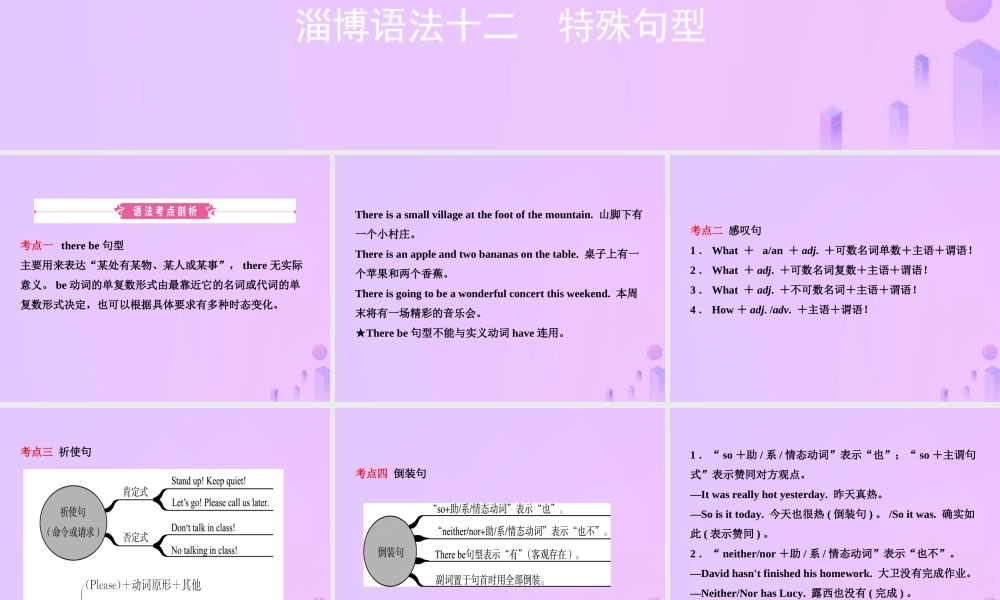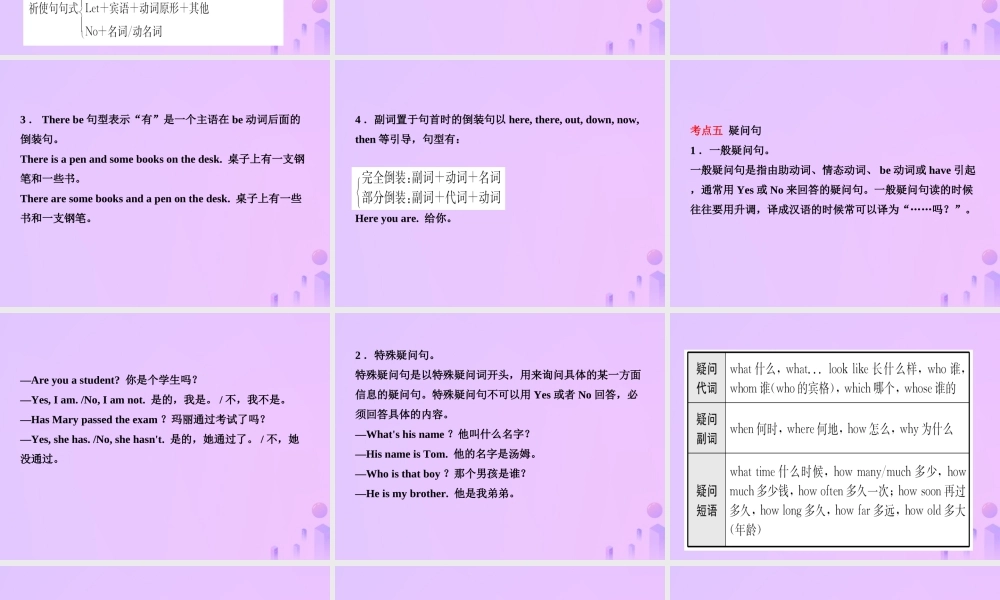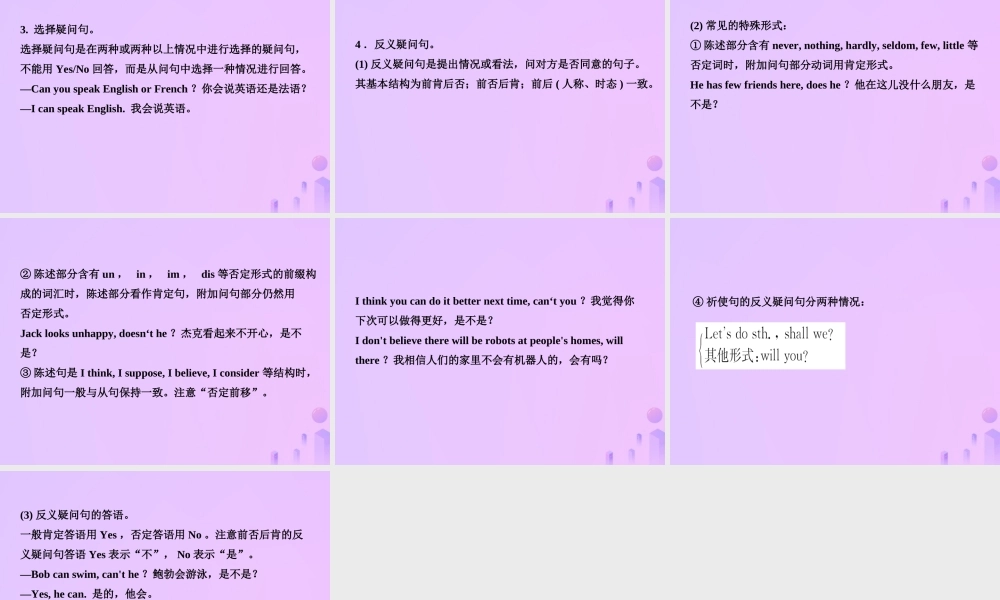淄博语法十二 特殊句型考点一 there be 句型主要用来表达“某处有某物、某人或某事”, there 无实际意义。 be 动词的单复数形式由最靠近它的名词或代词的单复数形式决定,也可以根据具体要求有多种时态变化。There is a small village at the foot of the mountain. 山脚下有一个小村庄。There is an apple and two bananas on the table. 桌子上有一个苹果和两个香蕉。There is going to be a wonderful concert this weekend. 本周末将有一场精彩的音乐会。★There be 句型不能与实义动词 have 连用。考点二 感叹句1 . What + a/an + adj. +可数名词单数+主语+谓语!2 . What + adj. +可数名词复数+主语+谓语!3 . What + adj. +不可数名词+主语+谓语!4 . How + adj. /adv. +主语+谓语!考点三 祈使句考点四 倒装句1 .“ so +助 / 系 / 情态动词”表示“也”;“ so +主谓句式”表示赞同对方观点。—It was really hot yesterday. 昨天真热。—So is it today. 今天也很热 ( 倒装句 ) 。 /So it was. 确实如此 ( 表示赞同 ) 。2 .“ neither/nor +助 / 系 / 情态动词”表示“也不”。—David hasn't finished his homework. 大卫没有完成作业。—Neither/Nor has Lucy. 露西也没有 ( 完成 ) 。3 . There be 句型表示“有”是一个主语在 be 动词后面的倒装句。There is a pen and some books on the desk. 桌子上有一支钢笔和一些书。There are some books and a pen on the desk. 桌子上有一些书和一支钢笔。4 .副词置于句首时的倒装句以 here, there, out, down, now, then 等引导,句型有:Here comes the bus. 车来了。Here you are. 给你。考点五 疑问句1 .一般疑问句。一般疑问句是指由助动词、情态动词、 be 动词或 have 引起,通常用 Yes 或 No 来回答的疑问句。一般疑问句读的时候往往要用升调,译成汉语的时候常可以译为“……吗?”。—Are you a student? 你是个学生吗?—Yes, I am. /No, I am not. 是的,我是。 / 不,我不是。—Has Mary passed the exam ?玛丽通过考试了吗?—Yes, she has. /No, she hasn't. 是的,她通过了。 / 不,她没通过。 2 .特殊疑问句。特殊疑问句是以特殊...




